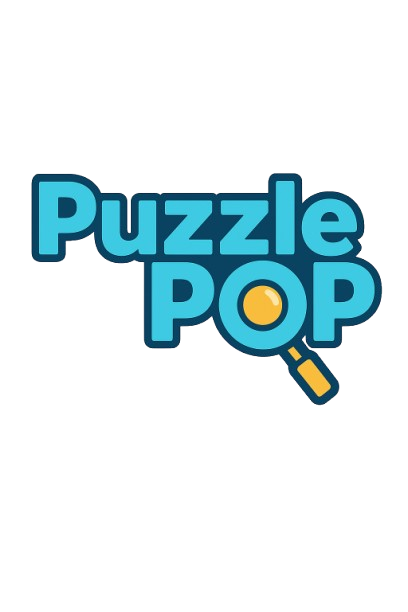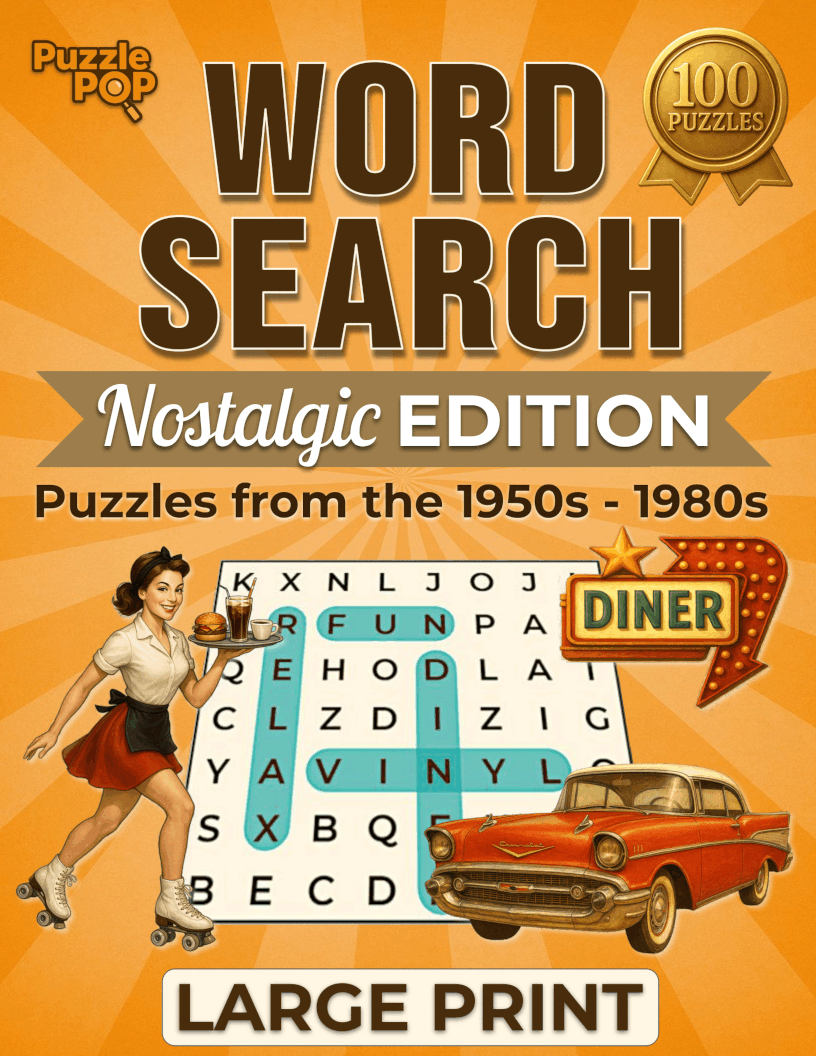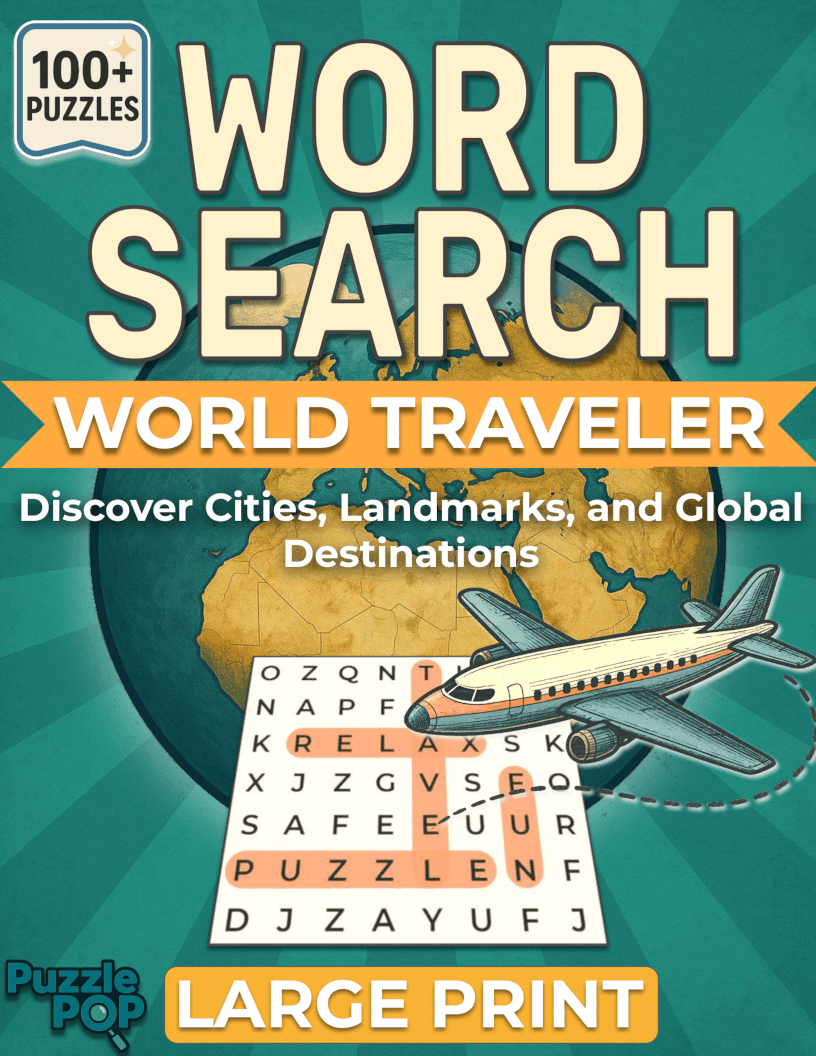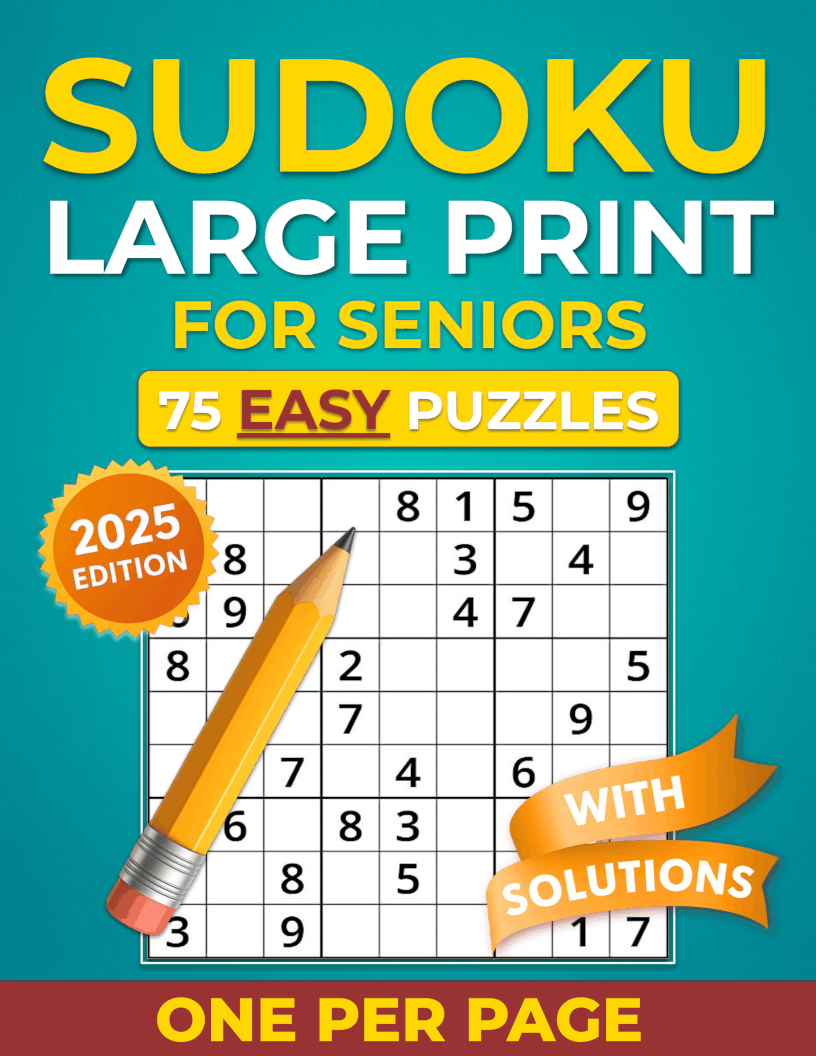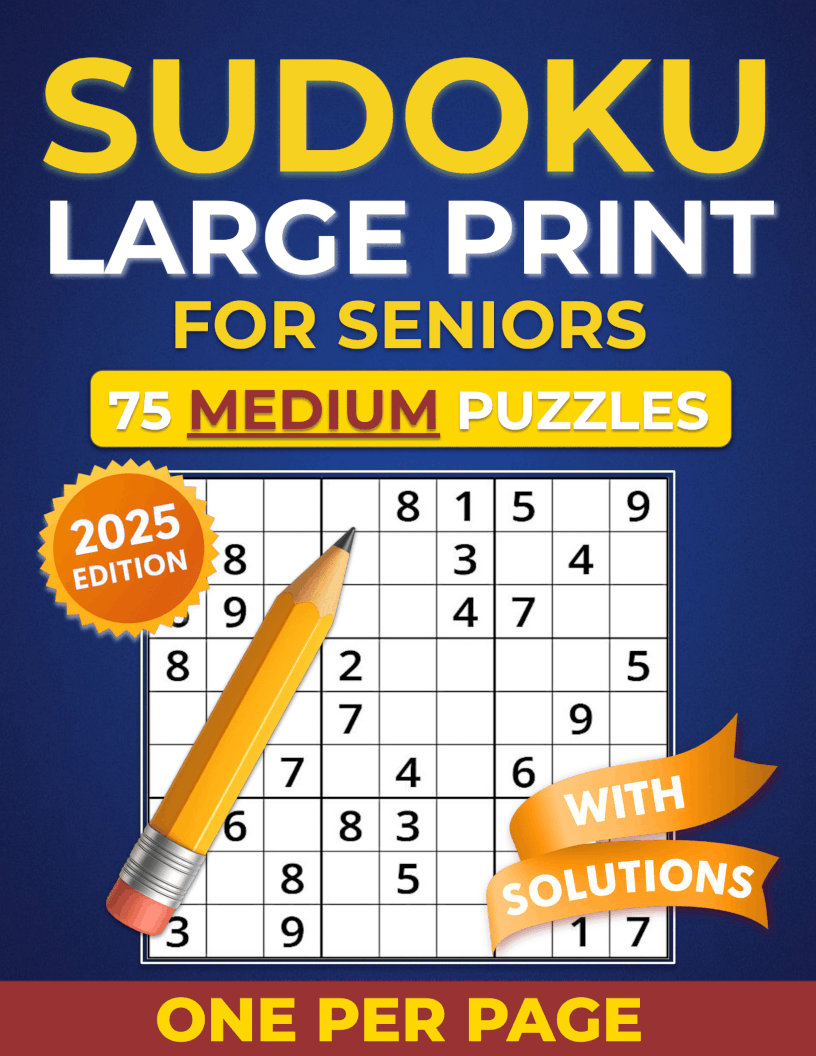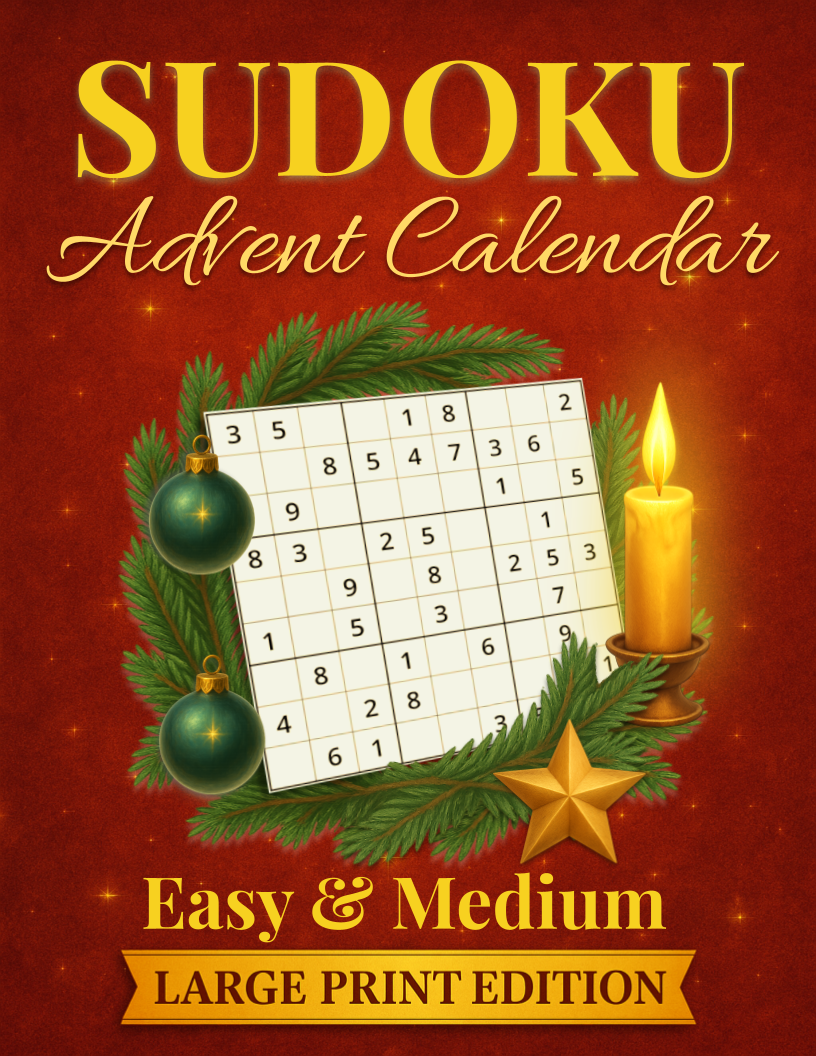Puzzle It Out: How Puzzles Help Reduce Anxiety
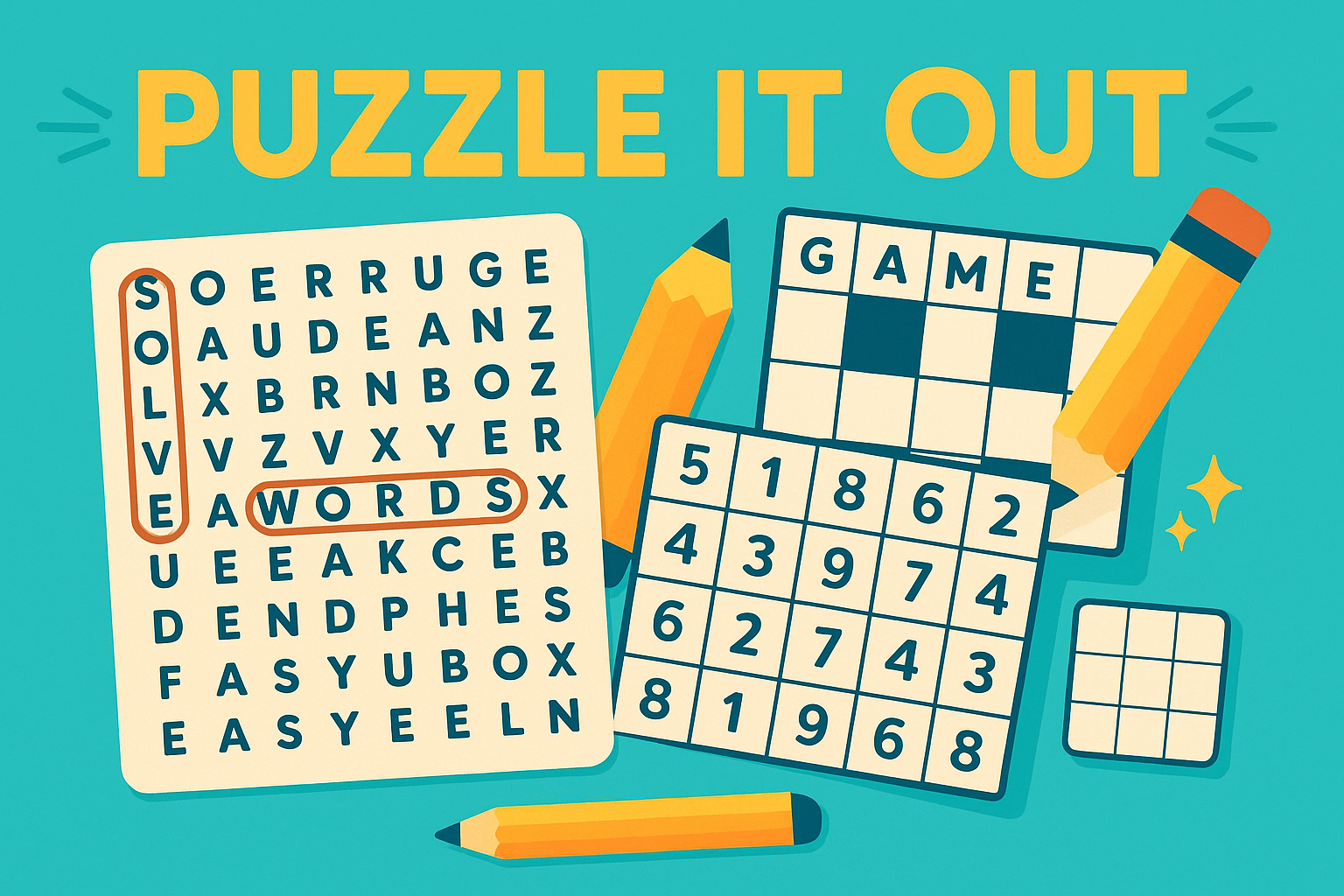
Word Games Help Calm Your Brain
We all know that anxious feeling—your brain won't stop buzzing, your to-do list is growing arms, and suddenly even deciding what to eat feels like a major life decision. But what if we told you that the answer to turning down the mental noise might be as simple as picking up a puzzle?
That's right. Word searches, crosswords, and Sudoku aren't just fun ways to pass time—they're powerful tools for calming your mind and easing anxiety. So, grab your pencil (or stylus) and let's dive into why puzzling it out might just be the mental health boost you didn't know you needed.
Puzzles Give Your Brain Something Better to Do
When anxiety kicks in, your mind tends to spiral—thinking ahead, imagining the worst, or replaying things that went wrong. But puzzles demand focus. Whether you're searching for that one last word in a sea of letters, filling in the perfect 7-letter clue in a crossword, or trying to avoid repeating numbers in a Sudoku grid, your brain shifts into problem-solving mode.
And that’s a good thing. According to the Centers for Disease Control and Prevention (CDC), engaging in mentally stimulating activities—like puzzles—can help improve brain health and reduce feelings of stress. When you're focused, you can't spiral. It's like giving your mind a tiny vacation—no passport required.
Word Searches = Meditative Focus
Word searches are basically mindfulness in puzzle form. You scan the page, you slow your breathing, and your mind tunes into the rhythm of finding one word at a time. It's calming, it's satisfying, and every word you find gives you a tiny dopamine hit. Science calls that positive reinforcement. We call it pure joy. Research published in the Journal of Behavioral Addictions shows that repetitive, structured tasks can help reduce rumination and anxious thoughts by occupying working memory.
It's nearly impossible to stress about tomorrow's email while you're deep in a hunt for "umbrella."
Sudoku = Organized Brain Bliss
Sudoku scratches that itch for order and logic in a world that sometimes feels like a mess. The structure is comforting, the rules are clear, and every box you fill in brings you one step closer to control. For people with anxiety, that can be huge. Studies like those cited in Frontiers in Psychology indicate that structured problem-solving activities can help regulate emotions and promote cognitive stability.
Plus, the repetitive nature of Sudoku can create a flow state—aka, the magical mental zone where time disappears and stress melts away.
Crosswords = Brain Training + Chill Time
Crosswords combine challenge with wordplay and curiosity. And guess what? A long-term study by the University of Exeter and King's College London found that adults who regularly do word puzzles show better brain function in tasks involving memory, attention, and reasoning. It's like strength training for your mind, only with fewer squats and more clever clues.
Even better? There's no wrong way to solve a crossword. Peek at the answers? Totally allowed. Pencil it in? Go for it. It's your brain's playtime.
The Real Magic: A Sense of Accomplishment
One of the best anti-anxiety tricks puzzles offer is that sweet sense of progress. Every word found, every square filled, every number placed—it's a little victory. And when life feels overwhelming, those little victories matter.
Completing a puzzle gives you concrete proof that you can solve problems, one step at a time. That confidence carries over into other areas of life, helping you approach challenges with a calmer, more methodical mindset. Yes!—you can do hard things (even if it's just finding a 9-letter word for “calm”... which is "stillness", by the way).
Ready to Puzzle Your Way to Peace?
Next time anxiety starts to bubble up, try reaching for a puzzle book instead of your phone. Give your brain the gift of focused attention on something enjoyable and achievable. Your nervous system will thank you.
And remember—there's no right or wrong way to puzzle. Do it for five minutes or two hours. Use pencil or pen. Check the answers or challenge yourself. The only rule is to enjoy the process and let your mind settle into the moment.
Frequently Asked Questions
How do puzzles help reduce anxiety?
Puzzles shift your brain into problem-solving mode, which interrupts anxious thought spirals. The focused attention required by word searches, Sudoku, and crosswords occupies working memory, reducing rumination. Research from the CDC shows that mentally stimulating activities help improve brain health and reduce feelings of stress.
Which type of puzzle is best for anxiety relief?
Word searches offer meditative, repetitive focus that calms the mind. Sudoku provides structured logic that creates a flow state. Crosswords combine challenge with wordplay and curiosity. The best puzzle for anxiety is whichever one you enjoy most—consistency and enjoyment matter more than the specific type.
Can word searches help with mindfulness?
Yes. Word searches naturally promote mindfulness by requiring slow, focused scanning of the page. The repetitive, structured nature of the task helps reduce rumination and anxious thoughts by occupying working memory, according to research published in the Journal of Behavioral Addictions.
How does Sudoku help with stress and anxiety?
Sudoku helps by providing structure, clear rules, and a sense of control—all of which counter the chaos that anxiety creates. The repetitive problem-solving can produce a flow state where time disappears and stress melts away. Studies in Frontiers in Psychology indicate that structured problem-solving activities help regulate emotions and promote cognitive stability.
How long should I do puzzles to reduce anxiety?
Even 5 minutes of puzzle-solving can help interrupt an anxious thought cycle. There is no strict time requirement—do it for five minutes or two hours. The key is to enjoy the process and let your mind settle into the moment. Regular, brief sessions are more beneficial than occasional long ones.
Sources & Reseach
- CDC: How to Maintain Cognitive Health
- Frontiers in Psychology: Problem-solving strategies in stress regulation
- King's College London / University of Exeter: Word puzzles linked to sharper brains
- Journal of Behavioral Addictions: The cognitive benefits of engaging attention with structured tasks

Written by The Puzzle Pop Team
Puzzle enthusiasts supporting better mental health through mindful activities.
